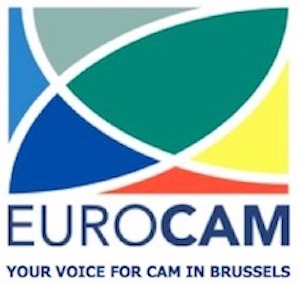Cancer and the contribution of CAM
A Round Table Meeting of the European Parliament Interest Groups MEPs Against Cancer and MEPs for CAM on Cancer and the contribution of Complementary and Alternative Medicine (CAM) took place on 27 March 2012.
MAC interest group and MEPs against Cancer
The meeting, a joint initiative of the CAM Interest Group – MEPs for CAM and the MAC Interest Group – MEPs Against Cancer, was aimed at presenting and discussing what role CAM can play in the treatment of cancer patients. Cancer remains one of the pressing health challenges for European citizens and surveys have shown that more than a third of cancer patients in Europe use Complementary and Alternative Medicine (CAM) to increase their body's ability to overcome the disease, to help deal with the side effects of conventional treatment, to enhance their health and to alleviate physical and/or psychological distress.
The meeting was chaired by MEP Sirpa Pietikäinen, EPP Finland.
As speakers, MAC-CAM had invited Ass. Prof Dr Harald Matthes, Director of the Community Hospital Havelhöhe Berlin, Germany, Prof Dr Gustav Dobos, Chair of Complementary and Integrative Medicine at the University Duisburg-Essen, Germany, Mrs Hedi Broson of the Norwegian Cancer Society, Oslo Norway and MEP Alojz Peterle, EPP, Slovenia. Due to a strike at the airport in Berlin, Dr Matthes was unable to attend and his contribution was presented by Dr Madeleen Winkler, Vice-President of the International Association of Anthroposophic Doctors.
Differences between the conventional and CAM approach
Dr Matthes’ presentation introduced the differences between the conventional and CAM approach towards health and disease in general and cancer in particular, the concepts of pathogenesis and salutogenesis, and outlined the concept of ‘integrative medicine’. He explained that CAM practitioners consider cancer as a disease of the whole organism rather than a local tissue disruption. Dr Matthes presented the motivations of cancer patients for choosing CAM, pointed to a number of important CAM medicinal products used in treating patients with such as mistletoe, and introduced some of the anthroposophic hospitals, specialized in cancer treatment. He concluded that patients are best served by a combination of conventional medicine and CAM, that evidence of the effectiveness of CAM in the treatment of patients with cancer is growing but that there is pressing need for further research in this important area.
The model of integrative oncology
Prof Dobos in his presentation gave an introduction to the model of integrative oncology, its aims and methodology. He presented a range of scientific studies demonstrating the effectiveness of several individual CAM modalities on the side effects of chemotherapy, on anxiety, fatigue, depression, on the motivation for lifestyle change, on the quality of life and on the survival of cancer patients. Apart from specific CAM modalities he emphasized the importance of relaxation techniques, cognitive restructuring, healthy diet, exercise and support from self-help groups, an approach that respects and enhances each person´s capacity for self-knowledge and self-care. He concluded that teamwork and the acceptance of all therapists is necessary for the proper functioning of integrative oncology models. He underlined the need for funding of scientific evaluation and recommended the development of curricula for integrative oncology for students, physicians and non-medical practitioners.
Information about CAM approaches to the treatment of cancer patients
Mrs Hedi Brorson from the Norwegian Cancer Society underlined the need of cancer patients for information about the different CAM approaches to the treatment of cancer patients in order for them to make informed decisions. She gave an introduction of the tasks the Norwegian Cancer Societies and NAFKAM – the Norwegian “National Research Centre on Complementary and Alternative Medicine” at the University of Tromsø.
MEP Alojz Peterle, who himself was a cancer patient, reported on his personal experiences and his conscious decision to use complementary medicine approaches to successfully overcome his disease – which has led to his support for CAM in the development of public health policies and the demand for a paradigm shift in oncology.
The brief discussion time centered on the need of cancer patients to get solid information about the treatment approaches in conventional medicine and CAM, that includes the benefits and limitations of both approaches. The joint CAM-MAC meeting concluded with an agreement that modern oncology needs to increasingly adopt an integrated approach that uses the best of both approaches, used together in an individualised manner for each patient.
About 40 guests attended the CAM-MAC meeting, including MEPs and delegates from the Commission and other European institutions, as well as health professional and Non-Governmental Organizations.
Presentations and documents available for downloading:
- CAM in Oncology
Adj. Prof Dr Harald Matthes, Medical Director of Gemeinschaftskrankenhaus Havelhöhe, Berlin Chief of the Department of Gastroenterology / Oncology; Adjunct Professor at the Charité University of Berlin, Germany. - CAM for Prevention and Integrated Treatment of Cancer
Prof Dr Gustav J Dobos, Professor of Internal Medicine, Chair of Complementary and Integrative Medicine at University of Duisburg-Essen, Germany. - Background document: The role of Complementary and Alternative Medicine (CAM) in the context of cancer.
